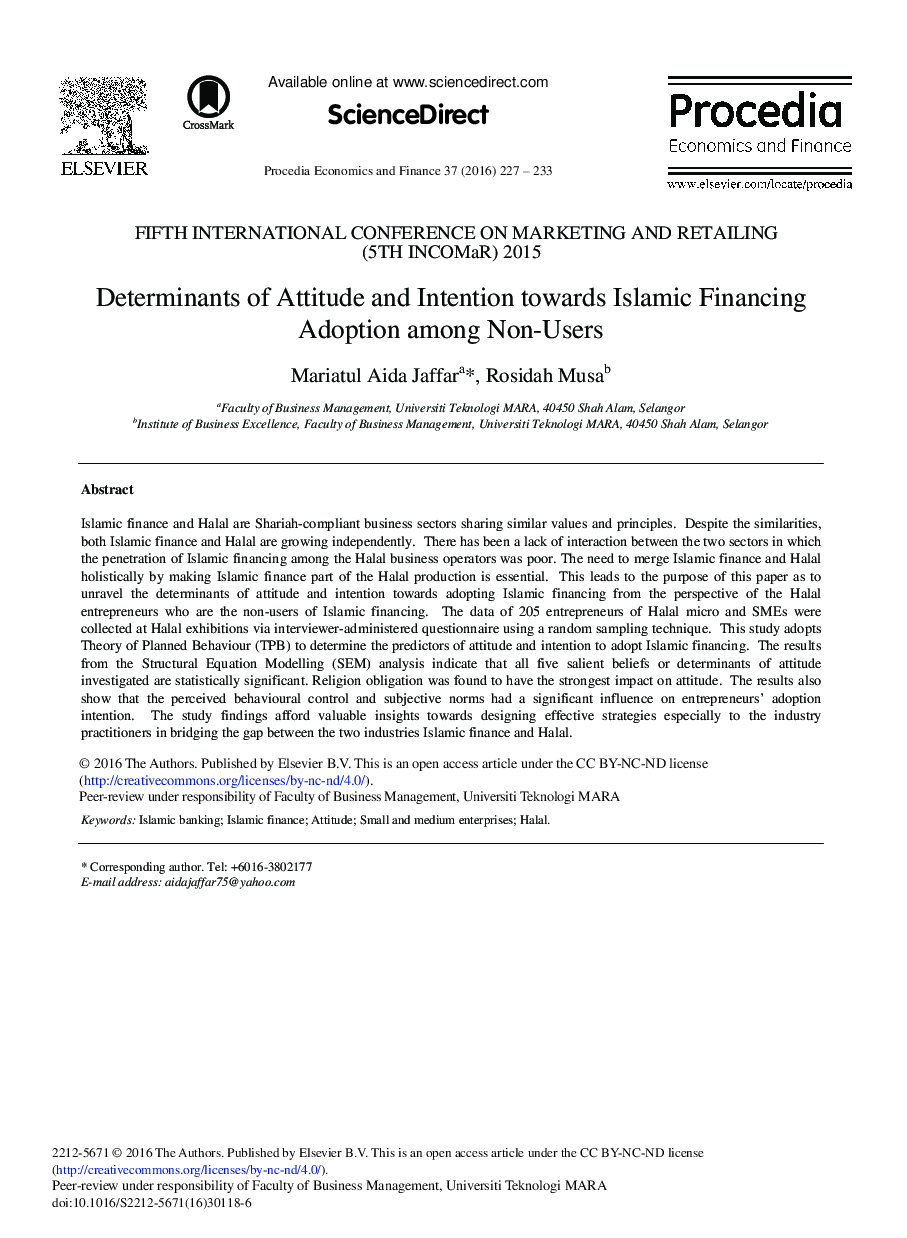| Article ID | Journal | Published Year | Pages | File Type |
|---|---|---|---|---|
| 980620 | Procedia Economics and Finance | 2016 | 7 Pages |
Islamic finance and Halal are Shariah-compliant business sectors sharing similar values and principles. Despite the similarities, both Islamic finance and Halal are growing independently. There has been a lack of interaction between the two sectors in which the penetration of Islamic financing among the Halal business operators was poor. The need to merge Islamic finance and Halal holistically by making Islamic finance part of the Halal production is essential. This leads to the purpose of this paper as to unravel the determinants of attitude and intention towards adopting Islamic financing from the perspective of the Halal entrepreneurs who are the non-users of Islamic financing. The data of 205 entrepreneurs of Halal micro and SMEs were collected at Halal exhibitions via interviewer-administered questionnaire using a random sampling technique. This study adopts Theory of Planned Behaviour (TPB) to determine the predictors of attitude and intention to adopt Islamic financing. The results from the Structural Equation Modelling (SEM) analysis indicate that all five salient beliefs or determinants of attitude investigated are statistically significant. Religion obligation was found to have the strongest impact on attitude. The results also show that the perceived behavioural control and subjective norms had a significant influence on entrepreneurs’ adoption intention. The study findings afford valuable insights towards designing effective strategies especially to the industry practitioners in bridging the gap between the two industries Islamic finance and Halal.
